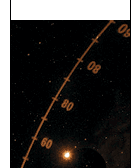

 |
|||
|
Bookshelf Please
send news of your recently published book along with a review copy,
if possible, to "Bookshelf," Oberlin Alumni Magazine.
Reviewed by Ted Gest '68 Oberlinians played a variety of roles, most unwillingly, in Kenneth Starr's investigation that led to the impeachment of Bill Clinton. Bob Weiner '69, then a spokesman for the White House drug policy office, was subpoenaed for urging a probe of Linda Tripp; the bookstore founded by William Kramer '68 was subpoenaed for Monica Lewinsky's purchase records; Linda Gustitus '69 helped draft the independent counsel law as an aide to Michigan Sen. Carl Levin. Now Benjamin Wittes '91 has looked back on the whole affair and reached a critical judgment, but not for the reasons many political analysts have offered. The basic problem with Starr's long-winded and expensive investigation, which captivated the nation between 1994 and Clinton's last days in office, was not that Starr was a Republican or was fixated on the president's sex life, Wittes concludes. Rather, he argues that the independent prosecutor drastically misread his own mandate. Wittes, who writes editorials on legal issues for the Washington Post, says that Starr should have been acting like a traditional prosecutor who decides if there is sufficient evidence to convince a jury that a crime has been committed. Instead, he ran a truth squad-type inquiry aimed at documenting Clinton's misdeeds for Congress. Wittes' book goes far beyond the musings of an editorial writer. He persuaded Starr to sit for 10 hours of interviews'his attempt to get at the truth of what motivated Starr. The result is a readable, albeit somewhat legalistic, analysis of Starr's modus operandi. The Wittes' thesis had received relatively little attention from journalists and other book authors, who have been caught up in the scandal's vivid personalities. In Wittes' view, Starr's investigation, "despite its hopeless grandiosity, somehow managed not to address rigorously the core question that lay at its heart: whether or not Bill Clinton should be prosecuted." More than two years after the investigation began, Starr's successor decided to convene another grand jury, eventually not prosecuting the departing president. Wittes does not escape criticism himself. One reviewer complained that the author took at face value Starr's truth-commission explanation, which was largely offered after the fact as a defense of an investigation that seemed out of control. Starr wrote a response to "fair-minded critic" Wittes in the magazine Legal Affairs, arguing that Congress "saw fit to define an extraordinary role for each [independent] counsel as a provider of information to the public." If lawmakers revive the special prosecutor law, Wittes maintains, "the more general truth-seeking function must devolve to Congress, to inspectors general, to historians, and to the press." The book is worthwhile reading for those concerned about how the integrity of government can be maintained when a political administration is called on to investigate itself. Ted Gest, a former editor at U.S. News and World Report, heads the program on crime policy and the news media at the Jerry Lee Center of Criminology at the University of Pennsylvania.
The hepatitis B virus causes an estimated 1 million deaths each year. Green, who has lived with hepatitis B for almost 25 years and has become an expert on the condition, guides those newly diagnosed through the first year of treatment, including diet, exercise, social concerns, and emotional issues. This is an excellent first-person account of HBV that leaves out the confusing jargon of in-depth medical texts.
In this creative work, the authors supplement recipes received from ex-boyfriends with colorful collages and stories about failed relationships. Recipes are divided into seven categories: sweet things, sort of fluffy things, savory things, spicy things, slippery things, and substantial things. The amusing and touching stories examine the ups and downs of love and place the recipes within the context of the relationships. Oberlin's infamous Banana House is mentioned in a story accompanying the recipe for The Mask Bandit's Banana Chocolate Chip Cake. |
|
back to top |